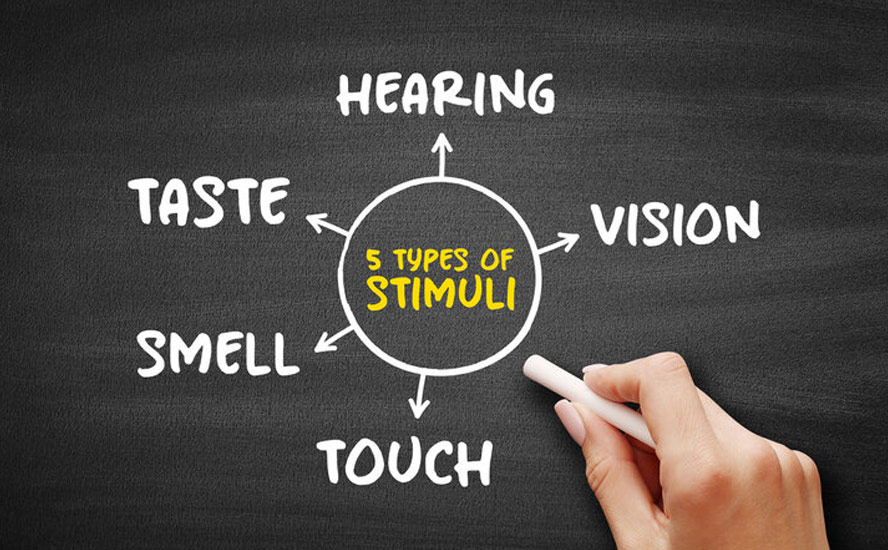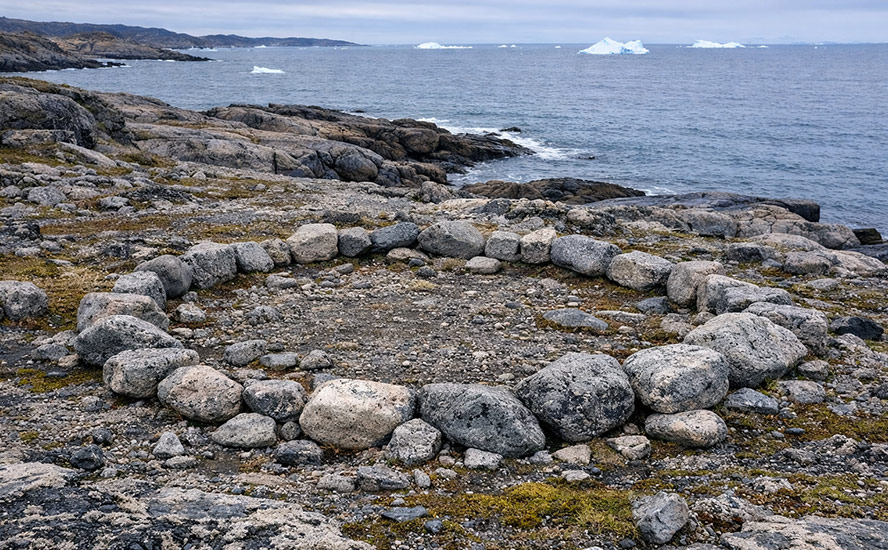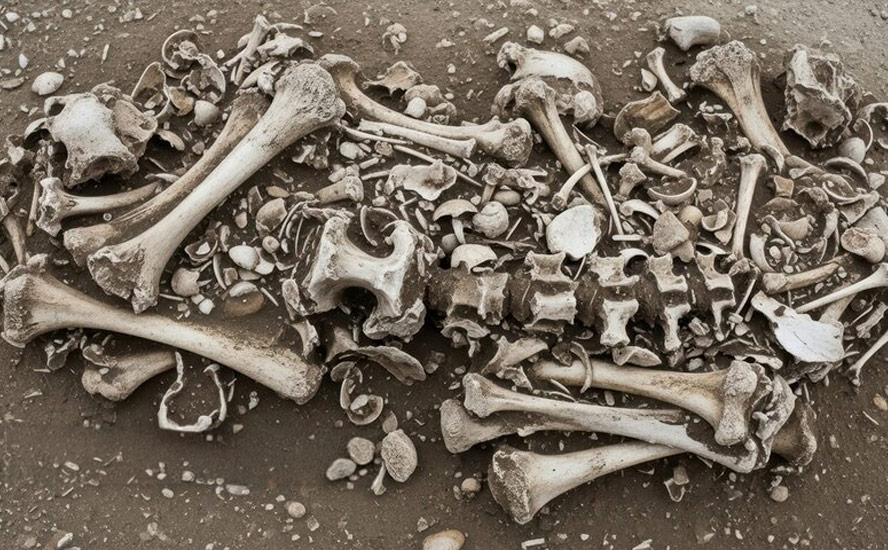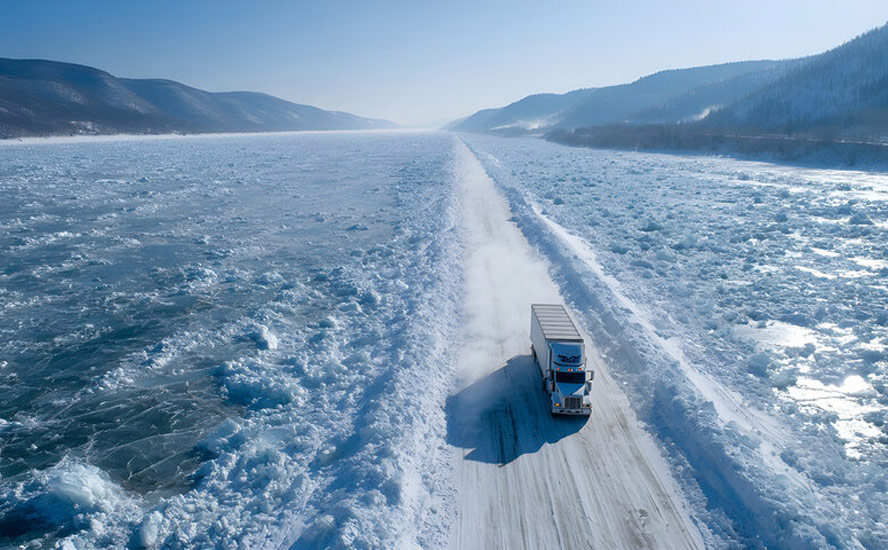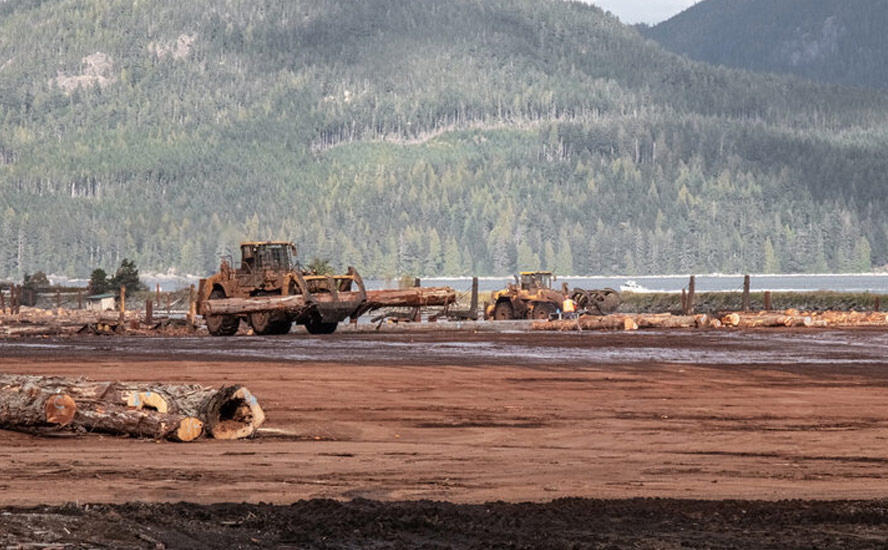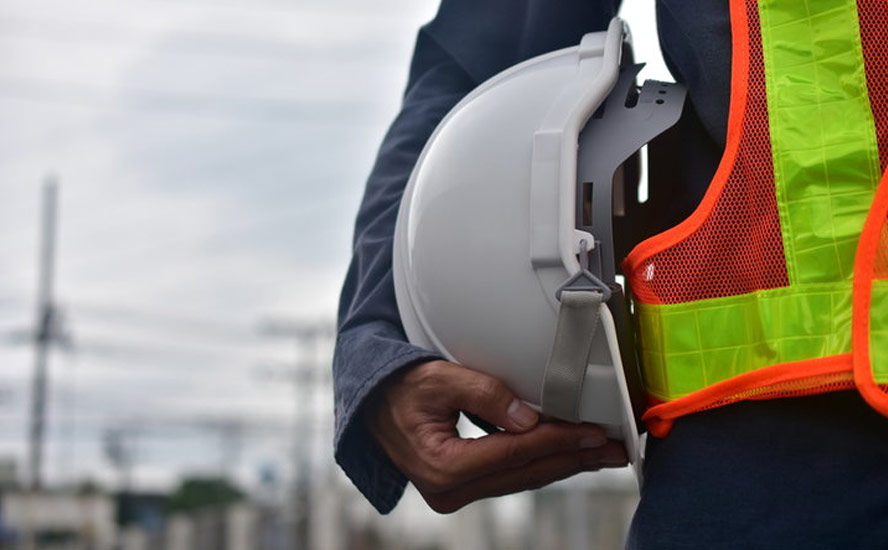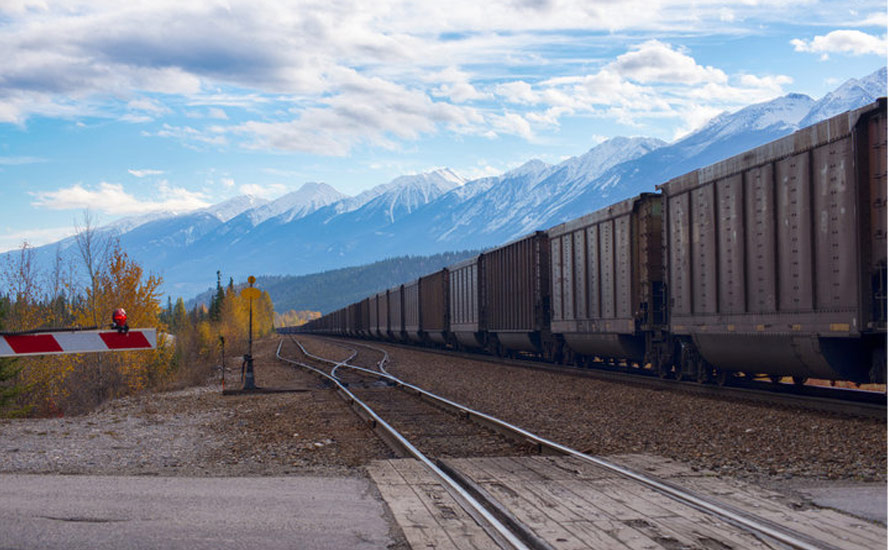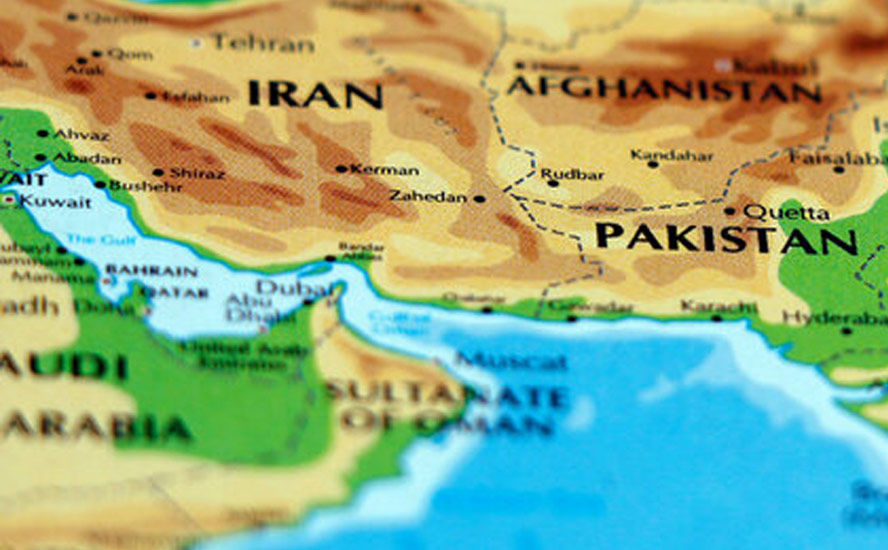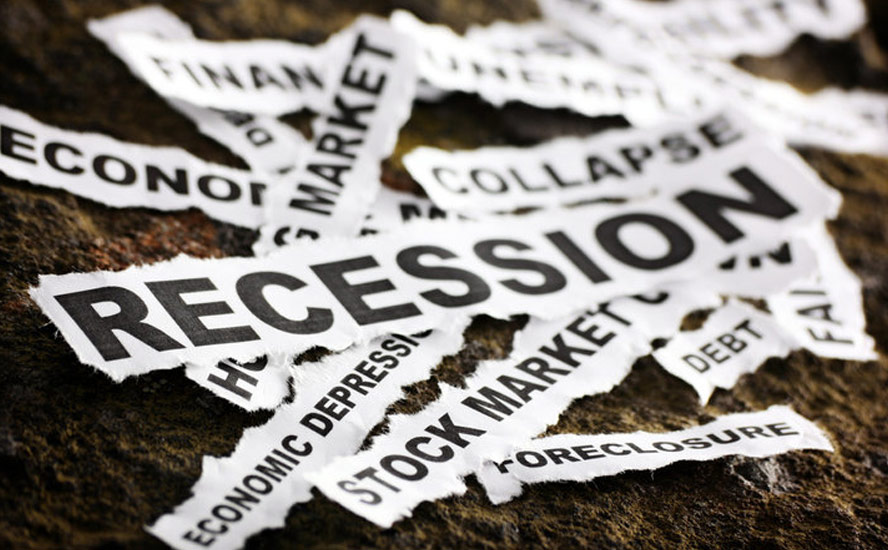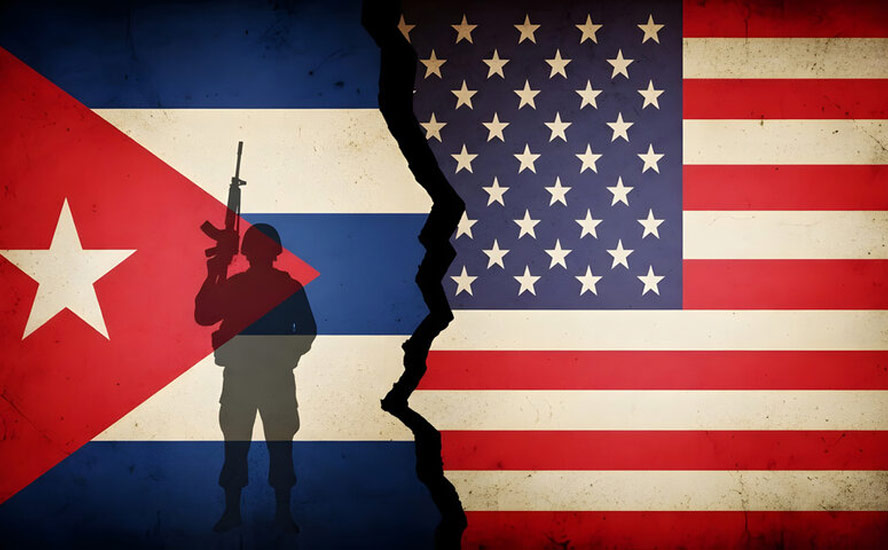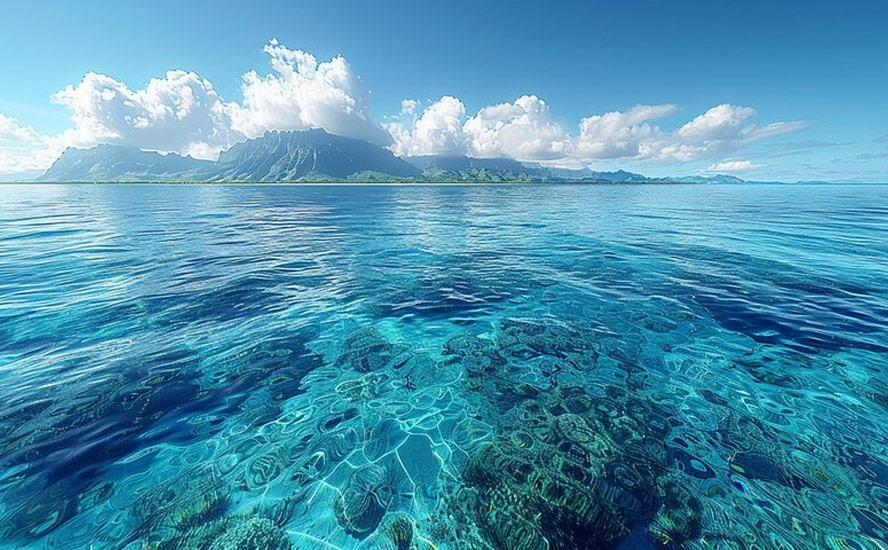We are drowning in plastic
2021.03.31
As the fight against the coronavirus continues to take center stage, an insidious environmental problem is getting worse: plastic pollution.

The global health crisis has prompted a rush for single-use plastic just as governments around the world were taking steps to curtail or ban its usage. Demand has surged for everything from face shields and gloves to takeaway food containers and bubble wrap for online shopping — most of which cannot be recycled and is ending up as waste.
A step backward
Where I live in British Columbia, the provincial government in January 2020 was considering a province-wide ban on single-use plastic grocery bags. Ten weeks later, as covid-19 cases exploded, chief public health officer Dr. Bonnie Henry ordered stores to provide plastic bags. Some cities were forced to cut back or cancel municipal recycling programs out of concern for public safety.
The notion that a highly infectious virus could be spread via re-usable bags has changed public attitudes about single-use plastics, which before the pandemic, appeared to be on the way out. Last August, a report by Dalhousie University covered by CTV News found more Canadians favor the health and safety protections offered by plastic, over re-usable alternatives.
In 2019, 90% of Canadians supported stronger regulations on plastic, with 70% in favor of a ban on single-use plastics, like grocery bags, straws, and take-away beverage cups. Six months into the pandemic, support for stronger regulations fell to 79% and only 58% supported a ban. Twenty-nine percent of the Dalhousie study’s participants reported consuming more products packaged in plastics during covid.
Further afield, China, which used to receive over half of the world’s plastic waste, in 2018 banned plastic scrap imports. The European Parliament voted to set a target date of 2021 to end single-use plastic, and the US Senate is also considering a ban.
However according to a special report by Reuters, about how the pandemic is “trashing the recycling dream,” covid-19 has intensified a price war between recycled plastic and new “virgin” plastic made by the oil industry.
The former is losing the battle, due to lower oil prices. As demand for oil dropped amid economic contractions worldwide, the price of crude fell, along with the prices of plastics, manufactured from petroleum by-products:
Since COVID-19, even drinks bottles made of recycled plastic – the most recycled plastic item – have become less viable. The recycled plastic to make them is 83% to 93% more expensive than new bottle-grade plastic, according to market analysts at the Independent Commodity Intelligence Services (ICIS).

The upshot? So long as oil prices remain depressed, it’s cheaper for bottling companies and other end users to buy virgin plastic, compared to the more expensive recycled material, dealing a serious blow to plastics recycling, which many see as a good way of curtailing plastic pollution.
According to the International Energy Agency (IEA), the petrochemical industry will represent the largest source of additional oil consumption through 2040 — with the manufacturing of petrochemicals like plastics adding 6.2 million barrels a day of oil demand. (oil production in 2020 averaged 76 million barrels of oil a day)
The oil industry obviously does not want to see plastics recycling increase, because it would mean less demand for crude. States Oilprice.com: For instance, if recycling increases from 15 percent to 33 percent, and if end use plastic consumption were reduced by five percent through ‘light-weighting’ (reducing the weight of products, and thus using less plastic), it could eliminate roughly 1.5 mb/d of oil demand by 2040.
Sea of plastic
Most people have heard of the Great Pacific garbage patch. The gyre of floating marine debris is estimated at anywhere between 700,000 square kilometers, about the size of Texas, to over 15 million kilometers squared. First noticed by a sailor completing a yacht race in 1997, the Pacific trash vortex, as it’s also known, is both an emblem of our careless, materialistic society, and a serious hazard to marine and aquatic life.

As the plastic breaks down into tiny pieces, called microplastics, it is mistaken for food, and ingested by marine animals. Thousands of birds, fish and sea mammals die each year after eating plastic or getting entangled in it.

Some of it works its way up the food chain, ending up in people’s stomachs. Humans are estimated to consume a credit card worth of plastic per week!
Plastic is also one of the biggest threats to coral reefs, according to National Geographic. The long-running nature magazine says over 11 billion pieces of plastic have been found on a third of coral reefs in the Asia Pacific — a figure that is expected to grow to 15 billion by 2025. Plastic bags, bottles and rice sacks found on reefs raise the risk of disease outbreaks, putting over 275 million people who rely on them for food and tourism in jeopardy.
It is estimated there are over 150 million tonnes of plastic in the ocean. Around 8 million tonnes enter the seas every year, or 22 million kilograms a day, the equivalent of dumping a garbage truck’s worth of plastic every minute.
About a quarter-million tonnes is thought to be floating, while the rest either sinks or washes up on beaches. Plastic isn’t only found on the beaches or off the coasts of large cities. Scientists are becoming alarmed at finding plastics in relatively pristine waters, far from population centers.
Last summer The Guardian reported on the work of a team of researchers collecting seawater samples on remote islands to the north and east of Fiji.
The team found coastlines awash with polyethylene in its many forms, “everything from shirt threads to ship ropes.”
Microplastics were found in seawater, freshwater, two out of every three fish, crabs, mollusks, and birds.
“Every place we visit, be it a metropolitan city, or a far distant, remote island, we find what we are looking for,” wrote researcher and guest columnist Andrew Paris.
“For too long, we have believed our moana is a boundless waterbody which we can contaminate without consequence.
We are wrong to think so.
Now, we find plastics everywhere.”

Only 9% of all the plastic ever produced has been recycled, according to Oceana Inc., an NGO focused on ocean conservation. “To solve this crisis, we must significantly reduce the use of single-use and disposable plastics at its source,” Oceana states.
The organization says global plastic production has nearly doubled since the start of the millennium and is expected to quadruple by 2050. In Canada we use 4.6 million tonnes per year, the rough equivalent of 125 kg per person. But a lot of it doesn’t end up incinerated or land-filled on Canadian soil. Between 1998 and 2016, according to Oceana, Canada shipped almost 4 million tonnes of plastic abroad, mostly to Asia. As mentioned, China finally said “enough!” in 2018. Since then, other Asian countries, such as Malaysia, have been inundated with plastic exported from developed nations. In many cases the huge piles of unrecyclable plastic garbage are burnt, exposing residents to noxious fumes. For an investigative report on where Canadians’ recycling ends up, watch ‘Tracking your plastic: Exposing recycling myths”

Plastic takes over 400 years to degrade, meaning most of it still exists, and only 12% has been incinerated. National Geographic says the problem of discarded plastic is so severe, that if nothing is done, by 2050 the oceans will contain more plastic than fish.
Burning it no solution
But the problem of plastic waste isn’t limited to the earth and water. When plastic is burned it gives off dangerous chemicals that, in some cities, are serious contributors to air pollution.

Scientists wanting to know why Delhi is more susceptible to thick smog, found the answer in the burning of plastic and household waste containing plastic. These activities emit large amounts of chloride, thought to be responsible for around half of Delhi’s smog events.
While most Canadian communities have laws prohibiting open burning, or restricting the types of material that can be burned, in poor countries up to 90% of waste ends up in dumps or is burned in open air.
Researchers quoted by The Guardian in another article estimate that the black smoke from open waste burning emits between 2% and 10% of the world’s carbon dioxide. The harmful practice also produces large amounts of dioxins and other pollutants that can persist in the food chain. In India, the extra chloride produced by burning plastics interacts with other pollutants, creating ground-level ozone that is estimated to reduce yields on some crops by 20-30%.
Chemicals associated with plastics are known to be harmful. The most well-studied is BPA — found in plastic packaging or food storage containers. When BPA leaks into food it can interfere with reproductive hormones in women.
Another chemical, phtalates, is used to make plastic flexible. The presence of phtalates in a petri dish was shown to increase the growth of breast cancer cells.
When microplastics were fed to mice, they accumulated in the liver, kidneys and intestines, stressing these organs. Plastics also increased the level of a molecule that may be toxic to the brain, says Healthline.

Turning the tide?
Thankfully, the news on plastic pollution isn’t altogether bleak. While the pandemic has caused many countries to hit “pause” on their plastic recycling, re- use and reduction programs, in recent years some positive developments have taken place.
Several US jurisdictions have enacted policies on plastic pollution. In 2018 Seattle became the first US city to slap a ban on plastic straws and single-use plastic utensils. Eight states — California, Connecticut, Delaware, Hawaii, Maine, New York, Oregon, and Vermont — have banned single-use plastic bags.
The Break Free From Pollution Act 2020, currently before Congress, shifts the responsibility for plastic pollution from consumers to plastic manufacturers. If passed, the legislation would phase out single-use plastic, and demands that these corporations finance, create and oversee proper waste management, a burden normally borne by local governments and taxpayers.
It would also establish a national beverage container refund program, empowering the Environmental Protection Agency (EPA) to establish more comprehensive recycling and compost labeling, along with requiring more plastic packaging to be produced using recycled waste.
The Canadian government has said it would ban a range of single-use plastic items across the country by the end of 2021.
As for Canadian cities, Montreal banned plastic bags thinner than 50 microns in 2018, followed by bans on plastic bags and straws in the Vancouver Island communities of Victoria, Tofino and Uclulet in 2019. On the other side of the country, PEI’s Plastic Bag Reduction Act came into effect on July 1, 2019.
Down Under, state-wide plastic-bag bans include South Australia, the Australian Capital Territory, Tasmania, the Northern Territory, and most recently, Queensland.
In Hamburg, coffee drinkers won’t find non-recyclable plastic coffee pods, while in New Delhi, illegal burning of plastic at garbage dumps forced a ban on all single-use plastic in 2017.
The most improved award must go to Morocco, which used 3 billion plastic bags a year — a shameful 9,000 bags per person — before a ban was passed in 2016.
Carrying a plastic bag in Rwanda could cost you a jail sentence, although most offenders get a slap-on-the-wrist fine of $61, according to Plastic Oceans, a campaign group.
Kenya holds the distinction of having the most draconian law against plastic bags. Anyone found using, producing or selling a plastic bag faces up to four years in jail or a $38,000 fine.
There have also been developments regarding the export of rich countries’ unwanted plastic garbage to poorer nations.
In January 2021 the new Basel Convention, first passed in 1989 to govern trade in hazardous materials, but amended in 2019 to include plastic waste, came into effect. As reported by EcoWatch, the amendment will result in a cleaner ocean within five years and allow developing nations like Vietnam and Malaysia to refuse low-quality and difficult-to-recycle waste before it ever gets shipped, a UN transboundary waste chief told The Guardian.
The amendment now requires “prior notice and consent” in writing from importing and transit countries before shipping plastic waste for recycling, the Environmental Protection Agency (EPA) explained.
Exporting countries must detail whether a shipment is mixed or contaminated. If permission isn’t granted to receive the goods, they must remain in their country of origin.
The new international rule aims to level the playing field between wealthy nations that dump contaminated plastic waste and poorer ones that have traditionally received it.
In December 2020, the European Union passed additional regulations that are even stricter than the Basel Convention amendment, including a ban on sending unsorted plastic waste which is harder to recycle, to poorer countries.
Conclusion
Plastic is a scourge of modern society. In our quest to keep products fresh and safe before sale, we have over-done it. In most Canadian cities, one can’t go to a mainstream grocery store without being loaded up with plastic along with your weekly shop. Many products sport multiple layers of packaging.
It took a long time for plastics recycling to be the norm in North America; Europe was doing it decades earlier. We thought it was enough, but it’s not. Plastics have become so ubiquitous —in un-recycled plastic bags, packaging of all shapes and sizes, single-use straws and utensils, coffee pods, plastic microbeads, etc. — that they have literally become part of us. Only 10% of plastic containers are recycled. The rest ends up in landfills, rivers, lakes and finally, the ocean.
Tiny particles shed from millions of plastic items are getting into the soil, the water, the air, and the food chain.
We are now eating, breathing, and drinking plastic. Time will tell what its effects will be, but it can’t be good.
The solution seems to be partly political, partly cultural. Previous mass messaging campaigns, like the campaign to stop drunk driving, and the anti-smoking crusade, have been fairly successful in changing public behavior. Sadly, the “tragedy of the commons” appears pervasive when it comes to littering and proper waste disposal. For example, recycling programs for metal beverage cans have been in place for decades, yet in Europe, around a quarter of the public throw aluminum cans in the regular garbage; in the US it’s worse, with a recycling rate of just 55.9%.
Laws targeting the plastic companies, rather than consumers, might make a difference, provided the punishment (fines) are more than “a cost of doing business”. Will tighter restrictions though be enough to counter the Big Plastic lobby in the United States, which as mentioned, has every intention of reducing the amount of plastic packaging that is recycled, so that more oil-based plastic can be made? I’m skeptical.
As for the trade in plastic, government bans on unsorted, hard-to-recycle bales of plastic waste are a good idea. However, they won’t stop the shipment of clean plastic which is a commodity like any other. If it becomes uneconomical for a receiver to recycle the plastic, the host government can’t force them to recycle it; dealing with unwanted plastic therefore is a problem that still needs tackling.
Most experts believe that recycling is not enough, and that production of plastics needs to be significantly curtailed to solve the plastic pollution crisis. That requires a change in behavior to use less plastic (not easy). Another, more exciting option is the introduction of alternative products to plastic that degrade more easily. Stay tuned for more about that.
Richard (Rick) Mills
aheadoftheherd.com
subscribe to my free newsletter
Legal Notice / Disclaimer
Ahead of the Herd newsletter, aheadoftheherd.com, hereafter known as AOTH.
Please read the entire Disclaimer carefully before you use this website or read the newsletter. If you do not agree to all the AOTH/Richard Mills Disclaimer, do not access/read this website/newsletter/article, or any of its pages. By reading/using this AOTH/Richard Mills website/newsletter/article, and whether you actually read this Disclaimer, you are deemed to have accepted it.
Any AOTH/Richard Mills document is not, and should not be, construed as an offer to sell or the solicitation of an offer to purchase or subscribe for any investment.
AOTH/Richard Mills has based this document on information obtained from sources he believes to be reliable, but which has not been independently verified.
AOTH/Richard Mills makes no guarantee, representation or warranty and accepts no responsibility or liability as to its accuracy or completeness.
Expressions of opinion are those of AOTH/Richard Mills only and are subject to change without notice.
AOTH/Richard Mills assumes no warranty, liability or guarantee for the current relevance, correctness or completeness of any information provided within this Report and will not be held liable for the consequence of reliance upon any opinion or statement contained herein or any omission.
Furthermore, AOTH/Richard Mills assumes no liability for any direct or indirect loss or damage for lost profit, which you may incur as a result of the use and existence of the information provided within this AOTH/Richard Mills Report.
You agree that by reading AOTH/Richard Mills articles, you are acting at your OWN RISK. In no event should AOTH/Richard Mills liable for any direct or indirect trading losses caused by any information contained in AOTH/Richard Mills articles. Information in AOTH/Richard Mills articles is not an offer to sell or a solicitation of an offer to buy any security. AOTH/Richard Mills is not suggesting the transacting of any financial instruments.
Our publications are not a recommendation to buy or sell a security – no information posted on this site is to be considered investment advice or a recommendation to do anything involving finance or money aside from performing your own due diligence and consulting with your personal registered broker/financial advisor.
AOTH/Richard Mills recommends that before investing in any securities, you consult with a professional financial planner or advisor, and that you should conduct a complete and independent investigation before investing in any security after prudent consideration of all pertinent risks. Ahead of the Herd is not a registered broker, dealer, analyst, or advisor. We hold no investment licenses and may not sell, offer to sell, or offer to buy any security.
Legal Notice / Disclaimer
Ahead of the Herd newsletter, aheadoftheherd.com, hereafter known as AOTH.Please read the entire Disclaimer carefully before you use this website or read the newsletter. If you do not agree to all the AOTH/Richard Mills Disclaimer, do not access/read this website/newsletter/article, or any of its pages. By reading/using this AOTH/Richard Mills website/newsletter/article, and whether you actually read this Disclaimer, you are deemed to have accepted it.






